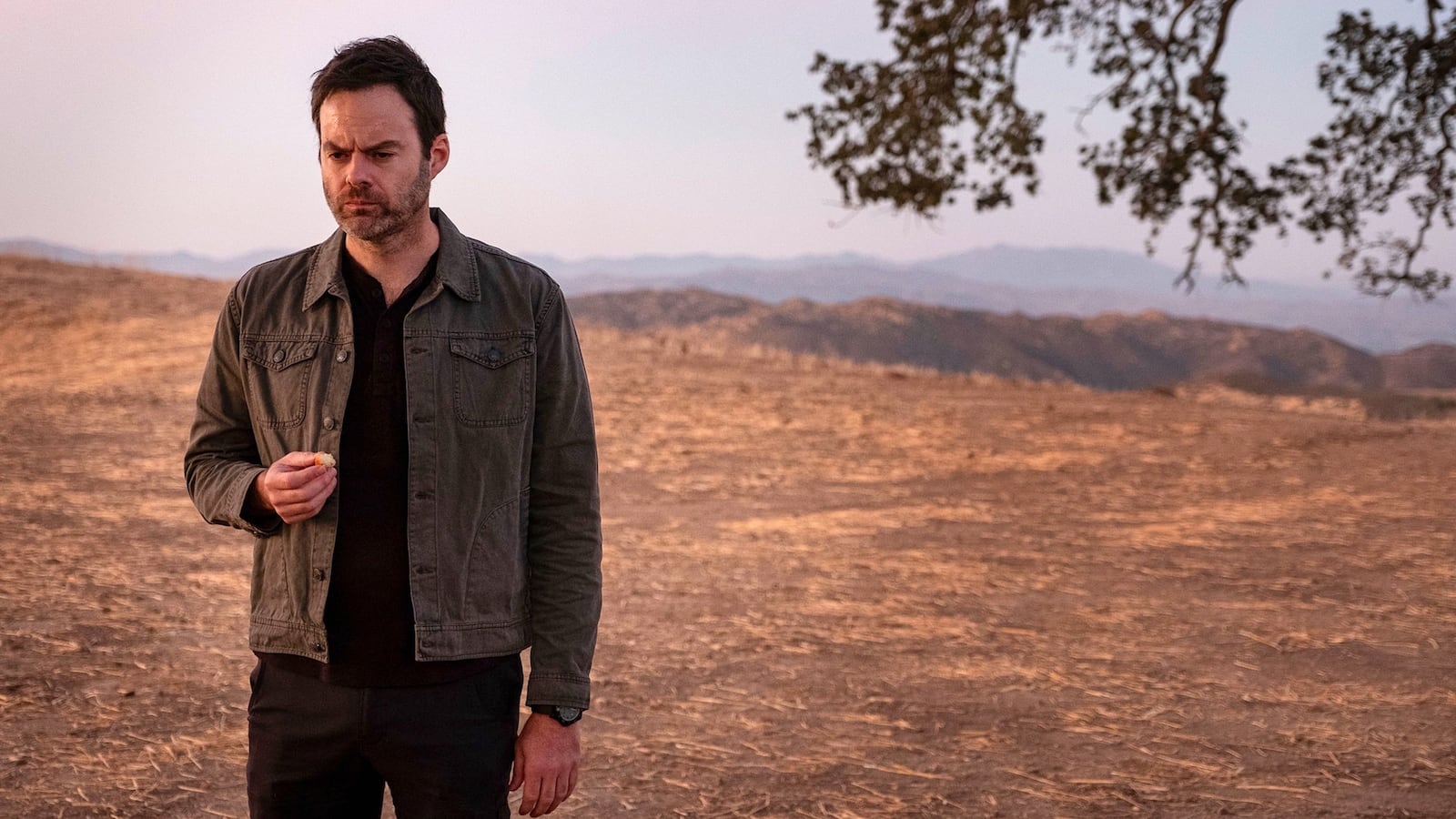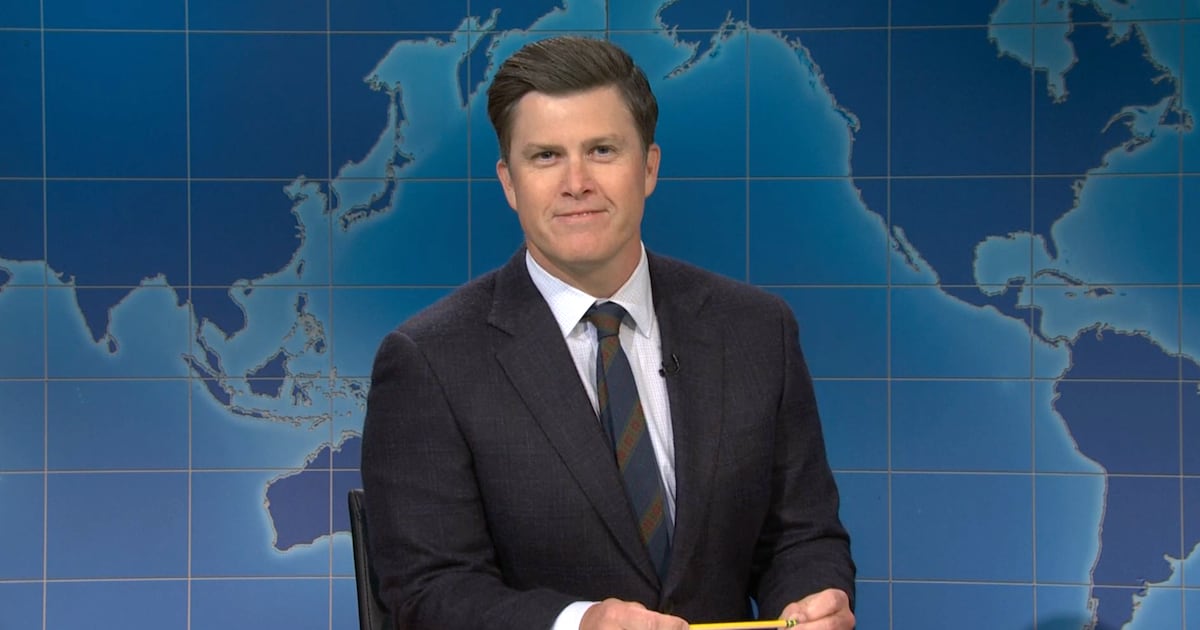In 2022, we’re all going freelance. Hitmen included. The gig economy has a far reach.
It seems like a lifetime ago when Barry premiered (2018, if we were ever so young), and in that time, Bill Hader’s well-meaning, tortured assassin-turned-aspiring actor has made great strides. He’s also stuck in neutral. At the end of last season, he was happy with his girlfriend Sally (Sarah Goldberg) and landed an audition with a major Hollywood director. He also committed a massacre while his mentor Gene (Henry Winkler) learned that he murdered the love of his life. Baby steps.
Gruesome as it is, there’s a familiarity to Barry’s weary “I can’t believe I’m still doing this shit” introduction at the beginning of Barry Season 3, which premieres Sunday night. It just so happens that his labored, beleaguered sighs are in reference to yet another assignment to kill someone and the bored “let’s just get it over with” has to do with murder and not sending an overdue email. That familiarity is one part of Barry’s genius. The other is never relenting on how intense those circumstances are.
That opening scene is perfect. Barry, who is now taking kill jobs through Craigslist, is staring off into the horizon and mindlessly eating a donut, completely dissociated as someone pleads for mercy off-screen. The way the killing field is framed is swoon-inducingly cinematic, in contrast to the screwball banter of the man who ordered the hit and his target, Jeff. The guy wants to forgive Jeff. “He’s sorry he fucked my wife!” You’re laughing. Barry’s not. Over it, he kills them both. “There’s no forgiving Jeff.” Is it heartless or pragmatic? It doesn’t matter. You can’t go back.
That’s the overarching lesson of Season 3 of Barry.
Season 1 made good on a genius, absurdist concept: a trained assassin who treats hitman jobs with the office-drone mundanity of an actuary finds himself attracted to the life of a struggling actor but, suffering from PTSD and depression, can’t shed his former self. Then the second season of the show was a Cinderella story of sorts. Things were working out!
Yes, there was still baggage. There were people he had killed, and people who still want him to kill, and people who are mad that he killed. But he was reaching the personal goals he had set for himself. The problem is, the baggage doesn’t go away once you get the glass slipper. When the unshakable past arrives and torments, it’s more crushing than ever. It can be ruinous. In these first episodes of Season 3, Barry doesn’t want to be ruined. But he also gives in.
It’s nice when a masterpiece returns and is still a masterpiece. This is still the best show on TV.
There are so many things being juggled. There’s the graveness of the assassin work and the stress of the consequences, both what it takes to get away with it and the web of secrets that is involved. There’s the seriousness of an actor’s journey and the life of a wayward artist, yet also the shrewd commentary on the ridiculousness of the entertainment industry. And there’s the portrait of a person who is wrestling with his demons and aspires to be better, but who is so real that he does the thing we all do and, even when he’s on the brink of success, succumbs.
The brutality of the crime is never forgotten, and not just because Barry is having hallucinations about killing the people he loves. Yet the levity is always there, because life is funny—even when life is dominated by death. In Barry, every character is dynamic, and that complexity is crucial to Barry’s own arc.
The stress of Sally’s new success running and starring in her own TV show based on her past abusive relationship isn’t just a supporting character’s arc. (A sequence in which she walks through her set making rapid-fire production decisions before acting is the best distilled depiction of making a TV show I’ve ever seen.) It reverberates through Barry’s every impulse.
NoHo Hank’s kooky hubris now that he’s a big-shot criminal isn’t just fodder to win Anthony Carrigan the Emmy he deserves. It establishes the new power dynamic that Barry can’t extricate himself from. When the season begins, he’s the one begging Hank for assassin work. It’s devastating. And, because this is Barry, hilarious—but, and this is why the show is so good, never glib.
Then there’s Gene. The show’s silliest character is now the most tragic, and Winkler’s performance along that trajectory could fuel an acting seminar that Gene could only dream to teach.
“Ever since I met that punk, bad things have happened to me,” he says about Barry, a line that, when it’s delivered in the show, makes the case for all-time-great status. He now knows that Barry, his mentee and surrogate son, is responsible for the murder of his girlfriend. But Barry doesn’t just let him be angry or vengeful, or simply call the cops. He must reconcile with his own past misdeeds, navigate his own safety so as not to be killed by Barry, and do it all against the backdrop of, begrudgingly, trying to make his own Hollywood comeback.
None of it should work. But it all works. So well.
Barry has the best deadpan comedy on TV. It is also the most stressful thing you’ll watch this year. Barry’s good decisions can’t save him. His bad decisions, of course, make everything worse.
The stakes of what’s happening with Gene and Barry, especially, create a breathless tension that dials up scene after scene to the point that you wonder whether your heart rate can withstand it by the time each brilliant cliffhanger arrives. Yet for all that drama, it’s also a series that understands the richness and humor that thrives in the banality of life. It makes firecracker comedy of the drollest interactions, but also knows when to swing for a pointed comedy moment, like when Elizabeth Perkins arrives for a scene-stealing guest spot illuminating how much of Hollywood and TV-making is bullshit.
There is commentary about toxic masculinity and learned destructive behavior. There are questions about what it means to truly atone, and the hopelessness of redemption. The undeniable humanity of Hader’s performance roots everything, a depiction of how hard it is to work through your shit.

NoHo Hank (Anthony Carrigan) in Barry Season 3
HBOIt’s all so emotional. The murder isn’t funny. The humor isn’t forced. But it’s somehow simultaneously so dark and scary, yet also uproarious—and neither seems forced.
The filmmaking, by the way, is a dream.
When a show is this good and its fans are as excited as they are for its return, there’s always a temptation to ask why we are watching this now. That would seem like a hard question to answer for a series that, again, is about a hitman who wants to leave that life behind to act.
I think Barry nails the genre elements of the show—the gun violence, the horror of the moments before someone is killed—with the kind of escapism we crave. The distance of those extreme circumstances maybe helps its core message land. It’s hard to change. You can’t leave your past. Things might look good for you but that doesn’t mean the world will stop putting barriers in your way, or try to drag you back down. You might want to be an optimist, but that’s not the world’s nature.
It’s bleak, but there’s also something darkly funny about it. That, I think, is Barry.





